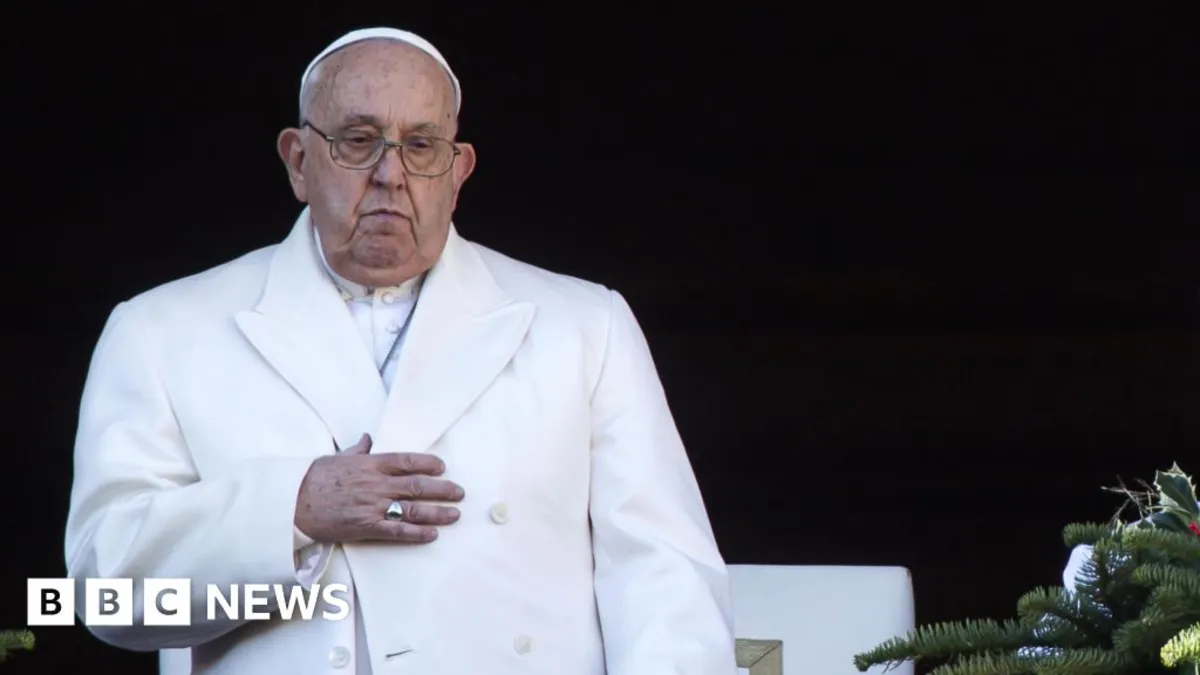
The Vatican has announced that Pope Francis, who has been fighting pneumonia for the past two weeks, is showing encouraging signs of improvement. In a recent medical update, the Vatican confirmed that the pontiff will remain hospitalized due to a complex clinical picture. As of Friday morning, the 86-year-old Pope had another peaceful night and is currently resting at Rome's Gemelli Hospital.
According to reports from the Italian news agency Ansa, Vatican sources have indicated that Pope Francis is no longer in the critical phase of his illness. The Pope was initially admitted to the hospital on February 5 after experiencing breathing difficulties for several days. His treatment began with a diagnosis of bronchitis, which later progressed to pneumonia affecting both lungs.
On February 8, the Vatican reported that the Pope had encountered a respiratory crisis and was in critical condition. However, a subsequent update on Sunday assured the public that he had not experienced any further respiratory crises since then. Following this period of instability, the Pope released a statement requesting prayers from Catholics worldwide, particularly after missing the traditional Angelus prayer for the second consecutive week.
While the Vatican has expressed optimism regarding the Pope's health, they emphasized that further days of clinical stability are essential for a comprehensive prognosis. Pope Francis is especially vulnerable to pneumonia, a serious lung infection that can stem from various sources, including bacteria, viruses, or fungi. This susceptibility is attributed to his history of pleurisy, an inflammation of the lungs he experienced as a young man, as well as a partial lung removal.
Throughout his nearly decade-long tenure, Pope Francis has been admitted to the hospital multiple times, including a bout of bronchitis at Gemelli Hospital in March 2020. His health challenges are closely monitored by both the Vatican and the global Catholic community.
Pope Francis, hailing from Argentina, holds the distinction of being the first Latin American and the first Jesuit to lead the Roman Catholic Church. His leadership has been marked by a focus on humility, social justice, and outreach to marginalized communities, making him a significant figure in contemporary religious discourse.